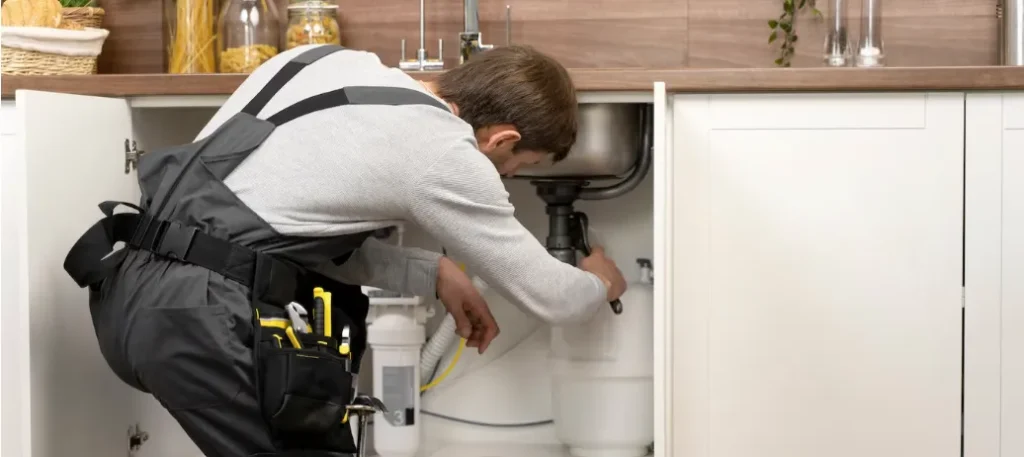Understanding the Cause of the Fishy Smell
Being in a house with such a smell or having an AC produce a smell like fish is not only uncomfortable but can also be a sign of existing problems. It is important for wellness and security that the distinct reason is identified and eradicated.

Below are the possible causes and how they can be addressed:
Common Causes of Fishy Smells
- Electrical Problems
- Overheating Wires: Overheating of electricity appliances is among the common causes of the fishy smell in the compound. When the temperature of the plastic components, such as wires and insulation, rises, they are marked by a fish-like smell. This can be deadly and pose risks, such as electrical fires.
- Faulty Outlets: Loose or damaged outlets can also contribute to the fishy smell since they may overheat, and that can really be a nuisance.
- HVAC Issues
- Clogged Air Filters: Filters literally clog with dirt, and this makes your AC produce not only heat but also a fishy smell in the house.
- Mold or Mildew: Usually, moisture accumulation in the ducts or unit can result in mold, which gives off a fishy or musty smell.
- Plumbing Problems
- Sewer Gas: A constantly dripping tap in your plumbing system allows sewer gases into your home and may be mistaken for a fishy smell
- Standing Water: Through time, water, especially the one in sinks, basements, or any other place, can become stagnant and develop bad odors.
- Pests
- Dead Animals: Sometimes it is discovered that a rodent or another small living creature has crawled into a wall or a vent and has died there, and then the stench appears.
Steps to Take When Your AC Smells Like Fish
- Immediate Actions
- Turn off the AC: If it is certain that the smell arising from fish contributed to the stink, it is advisable to turn off the unit to avoid more damage to the instrument or fire.
- Ventilate Your Home: It is also advisable to open all the windows and doors in the house and let fresh air filter in and around the house.

- Inspect for Electrical Issues
- Check outlets and cords. Search for overheating or any kind of damage to the engine of the car as it moves. If you do come across any, remove the plugs and do not use the particular outlets anymore.
- Call an electrician. If the source of the smell is not found or if there is bad wiring visible, then the services of a qualified electrician should be sought.
- Check the HVAC System
- Replace Air Filters: Make sure that the filters are clean and should be replaced often.
- Inspect Ducts: Check to see if you have mold or mildew building up, and if you do, you should clean it out. Professional cleaning may be needed if the case is severe.
- Schedule Maintenance: Regular maintenance by a qualified technician can prevent HVAC-related smells and issues.
- Examine Plumbing
- Look for Leaks: Inspect your plumbing for leaks or standing water. Address any issues promptly.
- Check Drains: Ensure drains are clear and functional. Consider using a drain cleaner to remove any buildup.

- Investigate Pests
- Look for Entry Points: Check for gaps or holes where pests could enter. Seal these openings to prevent further issues.
- Professional Help: If you suspect a dead animal, contact pest control to locate and remove it safely.
Preventing Future Odors
- Regular Maintenance
- Fix occasional check-ups for your heating as well as cooling systems, electrical wiring, and even plumbing.
- Use Air Purifiers
- Some of the functions that can be attributed to air purifiers include their capacity to eliminate bad smells from areas.
- Clean Regularly
- House cleaning can help one avoid incidences of mold and mildew as well as common pests within the household.
When to Call a Professional
First of all, you can try the methods mentioned above: washing, airing, masking, and excluding the sources of fish smell. An electrician, HVAC technician, or plumber can fix this, and your home will be safe and smell-free again.

Summary
An invasion of fishy smell in the AC or house may cause an individual to be worried; nevertheless, it is possible for him/her find out the cause and fix it. Therefore, regardless of whether it is a fish smell in the house or other HVAC problems, you should not delay taking the required action to eliminate or address the problem.
While it is proper etiquette to handle items on your own and they might not necessarily stink, it is prudent that if you are in doubt or if the smell lingers on, then it is advisable to call in professionals.

